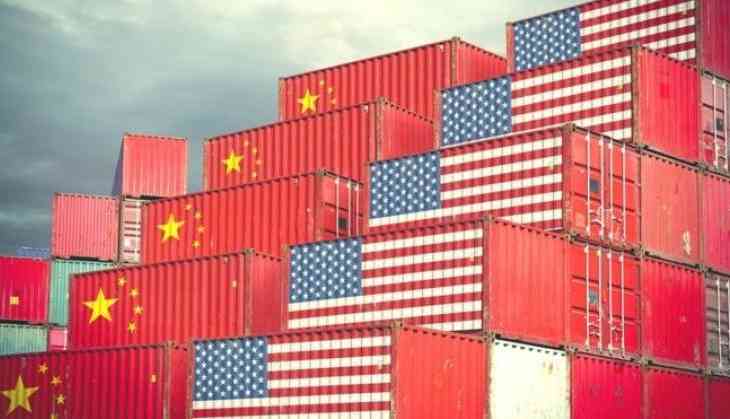
The Trump administration raised tariffs on 200 billion dollars worth of Chinese imports from 10 to 25 per cent on Friday, escalating trade war between the world's two largest economies.
Beijing vowed to retaliate. "China expresses deep regret over the development and will have to take necessary counter-measures," the Ministry of Commerce said in a statement.
"We hope the United States will meet us halfway, and work with us to resolve existing issues through cooperation and consultation."
Trump's decision to proceed with the tariff increase came after a pivotal round of trade talks in Washington on Thursday night failed to produce an agreement to forestall the higher levies, according to The New York Times.
The White House said talks would resume again on Friday but it remains uncertain whether the two sides can bridge the differences that have arisen over the past week.
In his comments at the White House on Thursday afternoon, Trump vacillated between threatening China and suggesting a deal could still happen.
The US President said he had received a 'beautiful letter' from Chinese President Xi Jinping and would probably speak to him by phone, but said he was more than happy to keep hitting Beijing with tariffs.
"I have no idea what's going to happen," said Trump. "They'll see what they can do, but our alternative is, is an excellent one." He said that American tariffs on Chinese products were bringing 'billions' into the United States government.
Meanwhile, a Chinese delegation led by Beijing's top trade negotiator Vice Premier Liu He arrived in Washington on Thursday for the latest round of trade talks.
Under the current circumstances, Liu said he "hopes to engage in rational and candid exchanges with the US side," Chinese state media outlet Xinhua reported.
Liu added that China believes raising tariffs is not a solution to the problems and is harmful to China, to the United States and to the whole world.
The renewed brinkmanship has plunged the world's two largest economies back into a trade war that had seemed on the cusp of ending.
The United States and China were nearing a trade deal that would lift tariffs, open the Chinese market to American companies and strengthen China's intellectual property protections.
But discussions fell apart last weekend when China called for substantial changes to the negotiating text that both countries had been using as a blueprint for a sweeping trade pact.
Trump, angered by what he viewed as an act of defiance, responded on Sunday by threatening to raise existing tariffs to 25 per cent and impose new ones on an additional 325 billion dollars worth of products.
In another development, Moody's Investors Service said the recent barbs negatively affects global sentiment and adds to risk aversion globally.
The higher tariffs could also lead globally to the repricing of risk assets, tighter financing conditions, and slower growth, said Michael Taylor, Managing Director of its Credit Strategy.
"In addition, the trade tensions could result in an increasingly fragmented global trading framework, weakening the rules-based system that has underpinned global growth -- particularly in Asia -- over the past several decades. For China in particular, the higher tariffs will have a significant negative effect on exports against the backdrop of a slowing economy," he said.
-ANI


